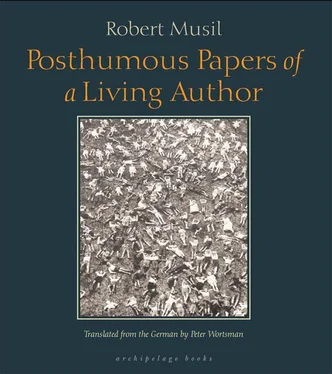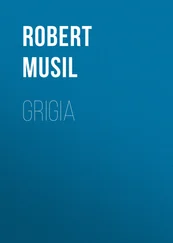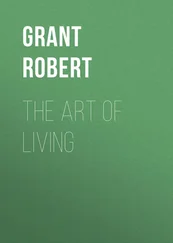Shall we then sing, “Who made you, oh lovely depot of technology and trade so fair, rise so tall above the ground? May our master’s praise — of the termites sucking sustenance from your wood chips; but also, depending on the circumstances, other methods of your utilization — resound, as long as my voice fills the air! — ?” To this question we will have to answer no, in principle. There still is the ozone that hangs over the trees, the forest’s soft green substance, its coolness, its stillness, its depth and solitude. These are unused by-products of the forester’s technology and are as splendidly superfluous as man is on vacation, when he is nothing but himself. Herein lies a deep affinity. Nature’s bosom may indeed be unnatural, but then man on vacation is likewise an artificial construct. He has resolved not to think about business, a resolve that constitutes a veritable inner ban of silence. After a short while everything grows unspeakably and delightfully still and empty in him.
How grateful he is, then, for the little signs, the quiet words that nature has in store for him! How lovely are those path markers, those inscriptions informing him that it is only another quarter hour’s walk to the Welcome Wayfarers Inn, those benches and weathered plaques that reveal the ten commandments of the forestry commission; nature waxes eloquent! How happy is he who finds others in whose company he can tread closer to nature: partners for his card game on the lawn or a punch bowl at sunset! Through such tiny aids, nature acquires the salient qualities of a lithograph, and much of the confusion is filtered out. A mountain is then a mountain, a brook is a brook, green and blue lie with consummate clarity side by side, and no ambiguities keep the observer from coming, by the quickest route, to the conviction that it is indeed a lovely thing that he possesses.
However, as soon as we have gotten this far, the so-called eternal values easily set in. Ask any man of today, not yet confused by critical chatter, what he prefers, a landscape painting or a lithograph, and he will answer without hesitation that he prefers a good lithograph. For the uncorrupted man loves clarity and idealism, and industry is infinitely better at both than art.
Such questions reveal the progressing convalescence of our patient. The doctor says to him: “Criticize as much as you like; bad temper is a sign of recovery.” — “That makes perfect sense!” replied the distressed patient, returning to consciousness.
Threatened Oedipus
Though malicious and one-sided, this critique lays no claim to scientific objectivity.
If ancient man had his Scylla and Charybdis, so modern man has his Wasserman test and his Oedipus complex; for if he succeeded in eluding the former, and effectively setting a little offspring on its own two feet, he can be all the more certain that the latter will catch up with his son. It may well be said that without Oedipus, next to nothing is possible nowadays, neither family life nor architecture.
Since I myself grew up without Oedipus, I must of course apply great caution in speaking my mind on such matters, but I admire the methods of Psychoanalysis. I remember the following from my youth: When one of us boys was so heaped with insults that, even with the best of intentions, he could not think up a retort that packed an equally powerful punch, he simply resorted to the little word “yourself,” which, when plugged into the silent pauses of his opponent’s tirade, promptly reversed all insults and sent them back to their source. And I was very pleased to discover in my study of psychoanalytical literature that all those persons who do not believe in the infallibility of Psychoanalysis are immediately shown to have their reasons for disbelieving, reasons which can naturally only be of a psychoanalytic nature. This is splendid proof of the fact that even scientific methods were acquired before puberty.
If, however, in its use of the “riposte,” medical science reminds us of the good old days of the mail coach, it does so, albeit unconsciously, certainly not without deep psychological associations. For it is one of medicine’s greatest achievements that, in light of the present scarcity of time, it educates us to a more leisurely use of time, indeed to an easy squandering of this fleeting natural product. The only thing you know after having placed yourself in the hands of the “soul-improvement expert” is that someday the treatment will come to an end, but you are satisfied all the same with the inroads you make. Impatient patients are quickly relieved of their neurosis, and immediately start in on a new one, but he who has arrived at an appreciation of the true pleasure of Psychoanalysis will not be so overeager. From the hustle and bustle of everyday life you step into your friend’s chamber, and if the world outside explodes with all its mechanical energies, here you find the good old time gently flowing. With solicitous care, you are asked how you slept and what you dreamed. The sense of family, otherwise so sadly neglected nowadays, is once again given its natural significance, and we learn that what Aunt Gerda said when the serving girl broke the plate is not at all ridiculous, but rather, if viewed in a proper light, more telling than one of Goethe’s recorded remarks. We even may ignore the fact that it is said to be not unpleasant to speak of the “bird in our brain” — as the German saying for being crazy goes — particularly if that “bird” happens to be a stork. For more important than any particulars, and clearly the most important object of such treatment, is that the individual, softly hypnotically coaxed, should learn once again to feel himself to be the measure of all things. For centuries he has been told that his behavior is beholden to a culture that is much more important than he himself; and since in the last generation we finally all but rid ourselves of this culture, it was henceforth the rampant spread of innovations and inventions beside which the individual felt like a nothing: but now Psychoanalysis takes this stunted individual by the hand and shows him that all he needs is courage and healthy gonads. May this noble science never end! This is my wish as a lay amateur: but I believe this wish is consistent with that of the experts.
I am therefore disturbed by a suspicion, which may well derive from my lay ignorance, but may also be true. For as far as I know, the aforementioned Oedipus complex is now, more than ever, central to the theory; almost all symptoms are traced back to it, and I fear that within one or two generations there will be no more Oedipus! We are cognizant of the fact that he springs out of the nature of the little man, who finds his pleasure in his mother’s lap, and is supposed to be jealous of his father, who drives him away from there. What, then, if the mother no longer has a lap?! We understand of course where this leads: the lap is after all not the only bodily region for which the word in its strictest sense was coined; but it also signifies psychologically the whole incubative mothering quality of the woman, the bosom, the warming fat, the calming and tender-loving softness; indeed, it signifies also, and not unjustifiably so, the skirt whose wide pleats form a secret nest. In this sense, the fundamental experiences of psychoanalysis definitely derive from the dress of the 1870s and 80s, and not from the ski outfit. And particularly if you consider the modern bathing suit: where is the lap in our day and age? If with psychoanalytic longing I attempt embryonically to imagine my way back to the lap in the running and swimming girls’ and women’s bodies that are fashionable nowadays, then, their curious beauty notwithstanding, I see no reason why the next generation might not be just as eager to crawl back into the father’s lap.
Читать дальше











